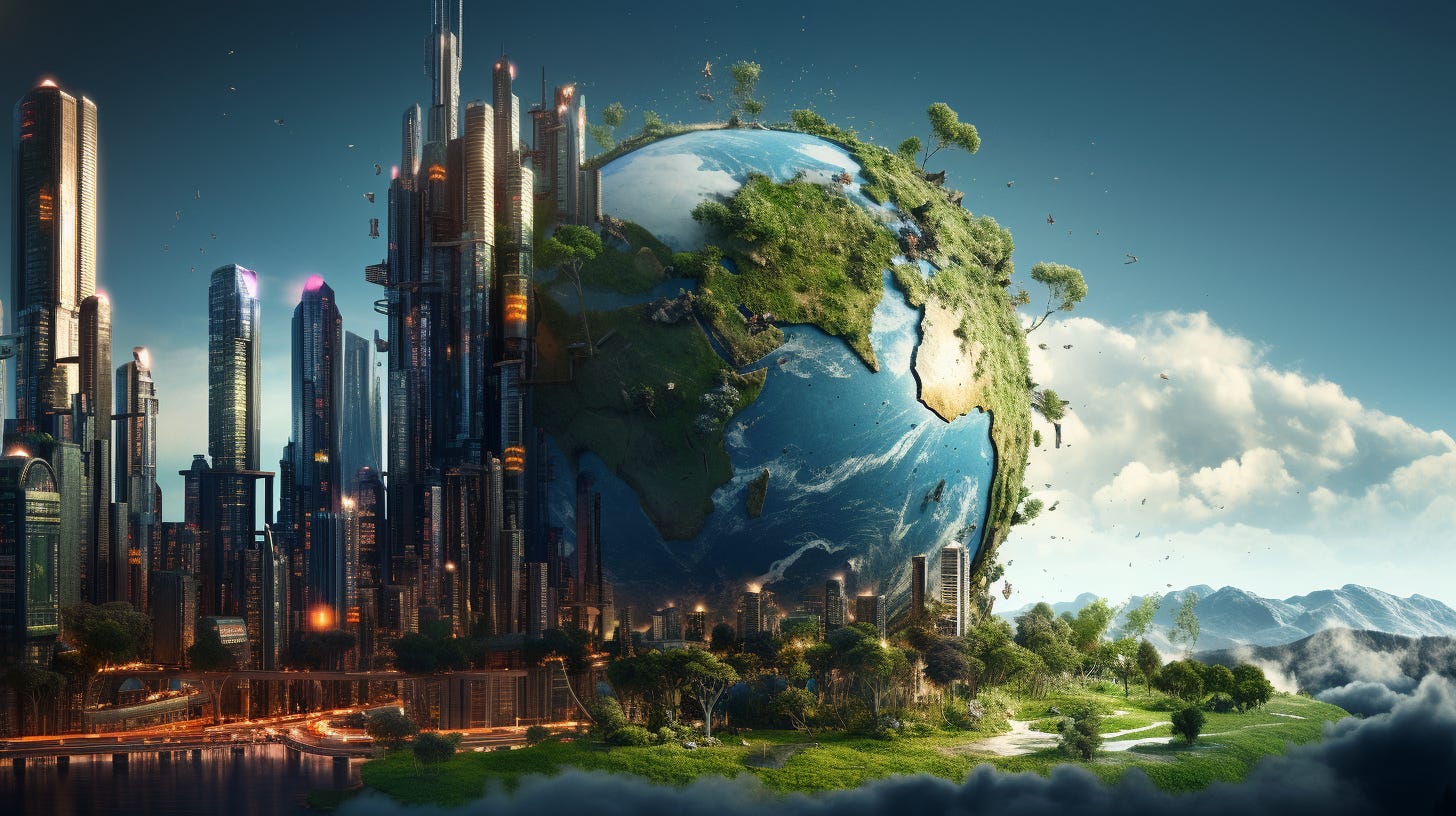Culture Change
A new paradigm to discuss the inevitable shift in human culture.
The birth of my maternal grandfather, the architect Thomas Burditt, was recorded in the family bible in 1885. I’ll come back to why this is important in a minute but for now, all you need to know is that this was the year before Karl Benz is credited with inventing the motor car.
This story isn’t about my grandfather - it’s about the compound interest of technological advancement, the passage of time and our lack of imagination when it comes to thinking about the future. My grandfather is just here for perspective.
Over the coming weeks I’m going to be exploring some of the more challenging aspects of the rise of AI and how I believe that’s going to impact our lives, the lives of our children and the lives of our grandchildren.
I want to look at how it’s likely to impact our economy, our politics and our relationship to things like education, entertainment, purpose and the truth.
To do that effectively I need to establish a shared paradigm: let’s call it Culture Change.
Our climate is a great metaphor for our culture. Both are complex systems, they inevitably change considerably over time but often change is only obvious with the perspective of history.
The reason the metaphor works is that, when you imagine our culture like the vast weather system it is – with interacting regions, natural seasons, repeating patterns of predictability and uncertainty, utterly chaotic and yet knowable in the moment – then it makes it easier to think about technology’s outsized impact on the natural order of things.
Information technology impacts our cultural climate in much the same way that industrial technology has impacted our natural climate. The change has been so subtle and benign for so long that, until recently, no-one stopped to think about whether it was all up-side.
Today, even with our natural climate locked in a cascade change, even as ever more frequent wildfires, hurricanes and floods savage populations across the world with alarming rapidity, even as habitats disappear and the oceans rise … we cannot stop ourselves from making things worse because everything is corrupted by an economic system which relies on ever increasing consumption to maintain itself.
Our culture - what we think of as a normal human existence - is undergoing the same cascade change. We just don’t see it because, like knowing that the oceans are going to rise over a metre in the next 75 years, we can’t really think that far ahead.
Over the coming weeks – as we discuss specifics like education, economics, politics and purpose – I want you to think about our culture like our climate. Things are changing and the rapid rate of change is going to create the cultural equivalent of the hurricanes, wildfires and floods that we see in the natural world.
By the turn of the next century, it’s virtually inevitable that humans will no longer be the most intelligent things on the planet (that milestone has arguably already passed) but it’s also probably inevitable that we will have integrated more completely, more physically and more cognitively with the technology we’ve created.
Yes, the idea of integrating ourselves with technology - of brain implants and cybernetic augmentation - will seem like unrealistic science fiction to us now but I’m not really talking about you and me. I don’t even need to be talking about our children. But for our grandchildren the world is going to be so different in so many ways we can’t possibly imagine and our role, I believe, is simply to make sure we get there as safely as possible.
Our generation has a duty of care to make sure that the rolling out this astonishing technology is not solely in the hands of those who use technology, as they currently do, to farm attention and propagate the naivety of the human population.
My grandfather was a child when motor cars were first developed and in his mid-20’s when Henry Ford started mass production.
I was a child when personal computers were first developed and in my mid-20’s when mobile phones and the internet became ubiquitous.
Today, my children are living through the dawn of AI.
The questions I plan to explore here are about what happens after AI reaches ubiquity, perhaps when they are in their mid-20s.
What shifts are likely in our cultural climate and what storms will they and their children have to weather? What will humanity and human purpose look like to them?



